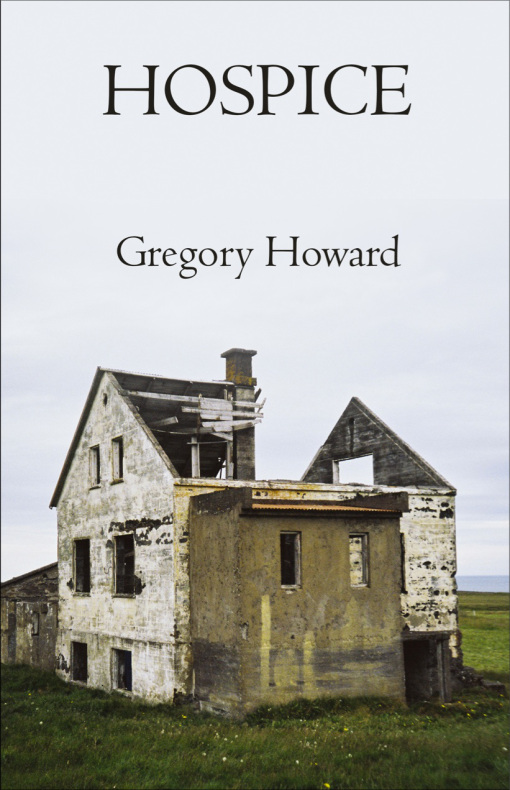
Hospice is a book that I’ve waited no less than five years to read. I heard Gregory Howard read a section of the work in progress in the spring of 2007 and instantly wanted to have the pages in front of me so that I could dissect the language of it. The section he read was from the first part of the novel—a scene where Lucy, the protagonist, describes her roommates. These eccentric young women do their best to keep their affairs private from prying eyes as they engage in a séance. The language of the piece seemed haunted, the words painted lightly in the air, faint and fading by the second, until all I had was the memory of a concept, an image without the language to describe it. Now, in the spring of 2015, I’ve read and reread the book, flipped between its pages, tracked minor stories and fables contained inside, parsed the sentences in my head and still I can’t bring myself to put the book on the shelf. It’s as if it’s haunted. A spirit that needs me to solve its undoing.
Hospice functions like a riddle that’s never meant to be solved and there’s not a moment where I object to it. The story unfurls. It rarely returns. At times it seems as if the book continues along a straight line, the point of origin lost forever, but then I remember the parables in the story. The bite sized stories told by the protagonist, by a child, by a seemingly comatose woman, the gate attendant of a desolate suburb, and I realize that I’ve had the answers all along. My initial impulse is to say this is an absurdist text, but that would be misleading. Though Howard’s text has elements of absurdist texts, this is something other. Something that feels comfortable in its presentation, but which is disquieting at the same time.
Perhaps one of my favorite interactions of the book is when Lucy, who has managed to lose a dog used for therapeutic purposes and a group of senile old women within a few moments, engages with an overly philosophic gatekeeper in an empty suburb.
Excuse me, she said at last.
Oh, he said, looking her over, appraisingly. We don’t want any.
What? She said.
We’re not interested, he said.
No, she said. I mean…I’m not selling anything.
Are you sure? he asked.
Of course, she said.
Because it would be terrible to find our that you were selling something you didn’t even know you were selling.
What? She said.
Insurance? he asked.
No.
Well-being?
I’m looking, she said.
A fine collection of kitchen knives?
For a dog, she finished.
This guard is the kind of absurd character you might find in a novel by Flann O’Brien. Both foolish and filled with insightful, if not bizarre, philosophies regarding the future of the houses in the empty subdivision, his long digressions speak to greater human truths. To the emptiness of the human heart. The constant search for companionship. For answers. For acceptance. In fact, many of the seemingly secondary characters in Hospice offer advice to Lucy, advice that is not helpful in regard to her particular tasks at the moment, but which provide answers to the greater mysteries of her life. Still, as is crucial in a metaphysical book such as this, Lucy has trouble connecting these misplaced bits of advice outside of the present moment.
Howard constructs a book where the reader must engage with these characters. Remember their stories. Put the pieces together as Lucy doesn’t seem capable of doing so. This gives the reader great satisfaction—we thrill drawing the conclusions that Lucy misses. Hospice is engaging, dark, and humorous. It captures the tenderness and complexities of the human condition without feeling precious.
***
Hospice
by Gregory Howard
FC2; 256 pages
Follow Vol. 1 Brooklyn on Twitter, Facebook, Google +, our Tumblr, and sign up for our mailing list.
